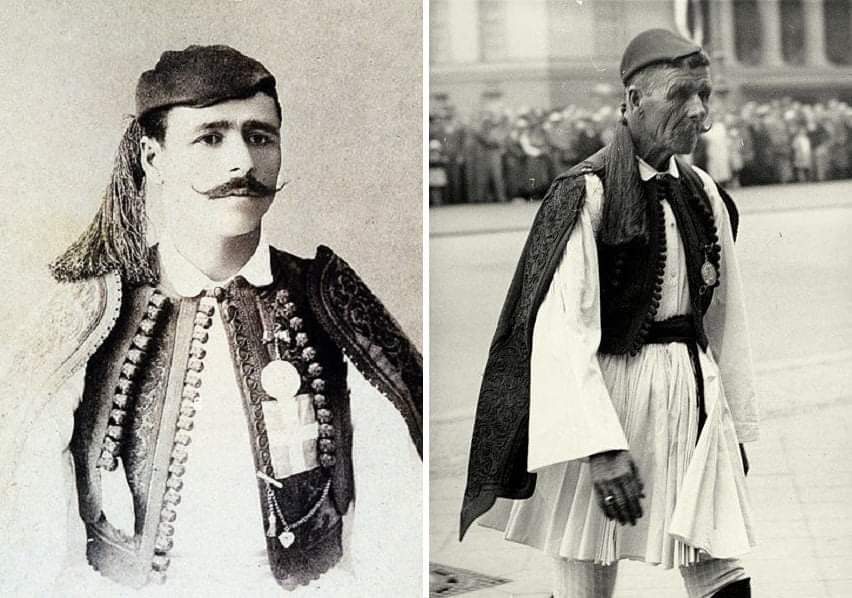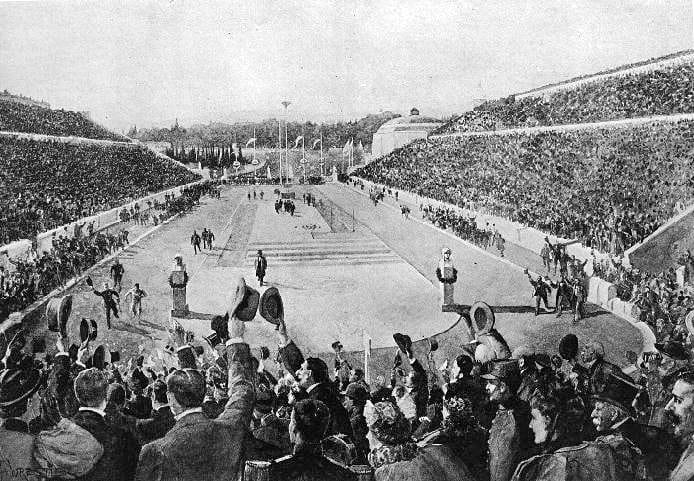Although encouraged by the ancient Greeks, the Olympic marathon is a fully modern invention.
After Athens was selected to host the first modern Summer Games in 1896, French linguist Michel Bréal proposed that the sporting competition include a long-distance run to follow in the footsteps of the legendary Pheidippides, the messenger. They dropped dead from exhaustion after sprinting 25 miles to Athens after the Battle of Marathon in 490 B.C. to bring news of victory over the invading Persian army.
On the afternoon of April 10, 1896, a group of 17 runners assembled near the ancient battlefield in Marathon to race the 24.8 miles to the Panathenaic Stadium in Athens, originally built in 330 B.C. and restored for the Summer Games. As the racers thumped the dirt roads towards Athens, announcers on bike and horseback sprinted to the stadium with updates.
Despite stopping halfway to eat an egg and quaff a glass of wine, 23-year-old Greek shepherd Spyridon Louis was the first runner to enter the stadium. As the 80,000 fans packed inside realized the leader was one of their countrymen, cries of “Hellene! Hellene!” filled the air. Among the fans caught up in the jubilation were the crown prince of Greece and his brother, who jumped onto the track to join Louis as he circled the stadium before crossing the finish line.

“The excitement and the enthusiasm were simply indescribable. one of the most extraordinary sights that I can remember,” wrote Pierre du Coubertin, the founder of the modern Olympic games.
It seemed at first that the host country had won the top three spots in the marathon, but third-place finisher Spyridon Belokas was disqualified for hitching a ride in a carriage along part of the racecourse. The first Olympic marathon champion received a cup donated by Bréal and an ancient Greek-painted vase.
Although he became a national hero in Greece, Louis returned to life as a farmer and never competed in another race again.

